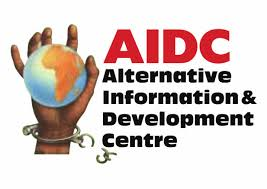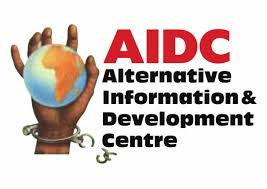Mboweni Downgrades the Poor
Published: Thursday, November 14, 2019
South Africans should brace themselves for more social and economic hardships following the medium-term budget policy statement (MTBPS). Today, the Finance Minister quoted from the Bible where he said, “Whoever sows sparingly will also reap sparingly, and whoever sows generously will also reap generously”. As far as the poor are concerned the Minister sowed nothing.

Government has made a commitment to supporting Eskom by allocating a further R49bn in 2020 and R56bn in 2021. Excluding these allocations from government expenditure represents a real cut in spending of R27,2bn and nearly R70bn, in 2020 and 2021 respectively. The MTBPS makes it clear when it says that “excluding Eskom support, national and provincial spending on goods, services and infrastructure is reduced by 2% per year over the next 2 years”. The biggest losers are provincial governments and municipalities - which are already in crisis - so we can expect even more service delivery protests.
In the context of a sick South African economy - manifesting itself in mass unemployment, xenophobia and increased violence - austerity is precisely the wrong medicine. Around the world - from Lebanon to Chile - people are saying no to budget cuts and privatisation, but the South African government is deaf to the cries of the oppressed. Minister Mboweni himself recognises the problem of xenophobia and gender based violence, but the problems are likely to be exacerbated given the continued addiction to austerity and failed export-oriented strategies. It’s the 10 million + unemployed and more than 30 million South Africans living on less than R1200 per month, who will pay a heavy price.
Once again, the Government failed to take the bold decisions required to respond to the deepening social and economic crisis facing the majority of South Africans. The first step should have been to undertake an audit of the public debt - starting with but not exclusive to Eskom. For instance, 2010 World Bank loan of the $3.75bn for Medupi and Kusile (today, this loan comprises 5% of Eskom’s debt) should be regarded as odious and be annulled.
Secondly, government as a debtor should speak to itself as a creditor and utilise the Public Investment Corporation (PIC), the asset manager for the Government Employees Pension Fund (GEPF), to bail-out Eskom. A top-up of the loan from the GEPF to Eskom, at a zero percent interest rate would have freed up the resources required for spending on health, education and social grants - without putting any pensions at risk.
Finally, government must acknowledge that at close to 40%, unemployment is a national disaster. South Africa desperately needs to resolve the Eskom, climate change and unemployment crises. This requires investment and a commitment to a low-carbon, wage led industrial development path. This state must build its internal capacity and lead this investment using its political and economic weight, only then will the private sector follow. South Africa is on a train heading for the cliff, government once again nailed its colours to the mast favouring the investors over the millions of poor and working people.
